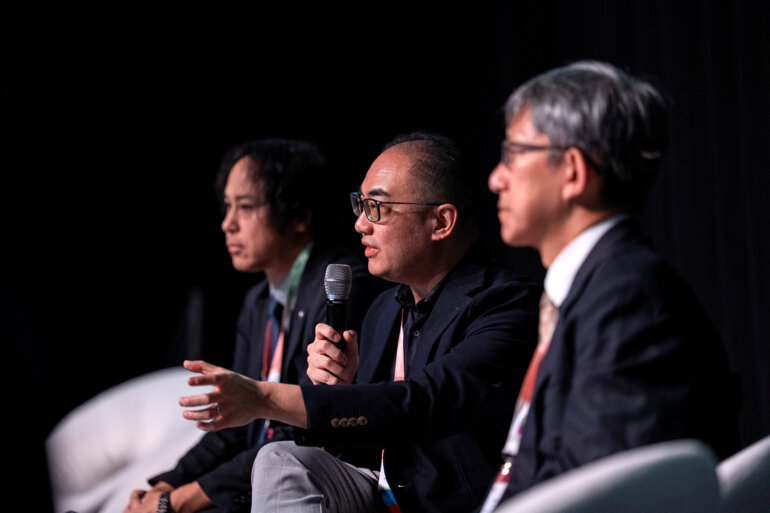Recent data from studies show novel pre-operative therapeutic options, but many pending issues need to be addressed
As we seek to push the boundaries in harnessing the immune system to more effectively treat cancer, important headway in early clinical trials in the neoadjuvant setting could also pave the way for practice-changing strategies to help a larger number of people with cancer. By enrolling untreated patients with tumours that are less likely to have developed cancer drug resistance, several patient-centric, pre-operative studies are showing promise in accelerating early drug development processes towards offering more patients with access to innovative treatments. The design of these trials facilitates biomarker discovery through the collection of bio-samples pre-treatment, reducing side-effects, and potentially sparing patients from additional life-altering treatments.
The example of colon cancer and melanoma
In 2022, the first data from the nonrandomised phase II investigator-initiated NICHE-2 trial presented at the ESMO Congress, demonstrated incredible responses in patients with locally advanced, previously untreated and resectable mismatch repair-deficient (dMMR) colon cancer, who received neoadjuvant nivolumab plus ipilimumab. The study showed that all patients responded, with a 67% pathologic response rate achieved within one month of therapy. At a median follow-up of 26 months, results of the expanded cohort published earlier this month, showed no disease recurrence (N Engl J Med. 2024 Jun 6;390(21):1949-1958). The study investigators observed that all 37 patients with a follow-up longer than 36 months remained disease-free. As noted in an accompanying editorial, further study would help to establish if these striking pathological responses translate in longer-term survival benefits, the benefit of neoadjuvant versus adjuvant dual immune checkpoint blockade, and determine the optimal treatment and duration of therapy (N Engl J Med. 2024 Jun 6;390(21):2024-2025).
As presented at the 2024 ASCO Annual Meeting, striking results of the randomised, patient-centric and investigator-initiated phase III NADINA trial, demonstrated that dual immunotherapy with neoadjuvant ipilimumab plus nivolumab – and followed by adjuvant therapy in the absence of response –, led to superior event-free survival (EFS) in patients with operable, macroscopic stage III melanoma (J Clin Oncol 42, LBA2-LBA2(2024)). Importantly, as several colleagues remarked during the meeting, the response-driven design of this study facilitated patient-tailored selection in the post-operative setting, and helped to alleviate the overall associated therapeutic burden. Serving as a possible blueprint for future neoadjuvant immuno-oncology trials, the NADINA trial enabled almost 60% patients to avoid additional adjuvant therapy after only two cycles of dual immune checkpoint blockade. This regimen also significantly decreased the risk of disease progression, recurrence, or death among patients in the investigational arm. At a median follow-up of 9.9 months, the results of the interim analysis showed a 26.5% absolute reduction in 12-month EFS with the neoadjuvant immunotherapy combination plus response-driven adjuvant therapy versus adjuvant nivolumab alone.
This pivotal phase III trial takes the lead in stage III melanoma by comparing neoadjuvant immunotherapy versus adjuvant standard of care. It also breaks the mold in phase III oncology trial design: it evaluates a neoadjuvant regimen and assesses if patients can forego additional therapy in the adjuvant setting, with important considerations including avoiding potential toxicities associated with immunotherapy and possible economic savings.
Towards novel standards of care
While rapidly emerging as a promising new therapeutic option in the pre-operative setting, immuno-oncology still has a long way to go. We must continue to assess the risk-benefit counterbalance and weigh up other crucial aspects including the selection of appropriate endpoints, the intensification and de-escalation of these (neo) adjuvant regimens, as well as the implications of engaging patients with a fresh diagnosis in decision making.
Moving forward, unleashing the potential of emerging neoadjuvant immunotherapies and related combinatorial approaches will only happen through the design of robust patient-centric clinical studies. As importantly, early must-have conversations with all key stakeholders including industry, academic investigators, regulatory bodies, patient advocates and ethics boards/committees will also be key to shaping the current and future landscape of neoadjuvant immunotherapy for cancer.
Up-to-date recommendations issued by expert task forces including the Methodology for the Development of Innovative Cancer Therapies (MDICT) Taskforce, established in 2006 and supported by ESMO, will also help to address some of the pending questions and issues in the field.







